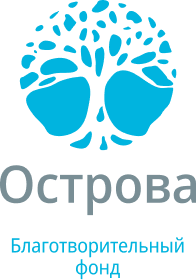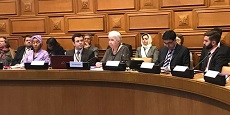On 11 November 2016, an NGO committee on rare diseases started to work at the United Nations headquarters in New York.
The NGO Committee on rare diseases is an independent committee, created on the initiative of the Ågrenska Foundation charity and EURORDIS, under the auspices of the NGO Conference. It has consultation status at the UN Economics and Social Committee (CoNGO).
More that 30 leaders of the international community working with patients with rare diseases participated in the opening ceremony, including heads of patient organisations from various countries and international federations dealing with rare diseases, as well as professionals representing the UN and the EU.
Russia was represented by Irina Myasnikova, who co-chairs the All-Russia Patients Union, executive director of the All-Russia Rare (Orphan) Diseases Society, Chair of the Governing Committee of the Help for Cystic Fibrosis Patients organisation. She reported that, in recent years, Russia has made great progress in fulfilling social duties, including to the patients with rare and extremely rare diseases:
“Let me quickly go back 26 years to the time when there was no specific rare disease legislation and rare disease patients had very limited opportunities to access proper diagnostics, specialised medical care and orphan drugs. This was the time when the first patient groups like the societies for haemophilia, Gaucher disease and cystic fibrosis, which I represent, and other associations appeared in Russia.
As individual patient organisations, we all started by taking care of rare-disease patients, that is, providing them with diagnostics and medical care and teaching them how to live with their conditions through special patient schools. We also started to develop an infrastructure and our first success was a neonatal screening programme for five rare diseases, which was set up back in 2006. This would never be possible without support from the medical community and the Russian Ministry of Healthcare.
As time went by, we understood that joint efforts could lead to better results and this was how the Russian union of patients – an umbrella organisation for all Russian patient groups – started up in 2008. And we work in close collaboration with EURORDIS, are members of Rare Diseases International (RDI) and the International Alliance of Patients Organisations (IAPO).
Our next goal was to secure sustainable funding. Through participation in conferences, meetings within the lower and upper chambers of Russian parliament, by sending letters to the Government and having personal meetings, by working with the media and promoting the initiative on our websites we were able to deliver this message all the way through. In 2008, the Government approved five rare diseases (haemophilia, Gaucher disease, cystic fibrosis, hypophesal nanism and chronic mieloleucemia) to be funded at the federal level and this saved the lives of many patients with rare diseases”.
Irina Myasnikova suggested that the rare diseases committee should assist in promoting a special UN resolution on rare diseases. Such a resolution could include all the necessary steps, from help for patients for whom no treatment has yet been developed, a special approach to pricing, to providing equal access to medical care.
“I would like to call on the rare disease community to develop/support a UN resolution on rare diseases, like the one for diabetes and other conditions. Rare disease patients represent a minority of world’s population but are still an equal part of the global community. For them, in the majority of cases, access to treatment equals means staying alive. The resolution should cover all the requisite steps, starting from addressing high unmet medical needs to securing equal access to therapies already available. I strongly believe that a UN resolution would help to leverage the voice of the rare disease community and secure rare disease patient rights to equal access to medical care”, noted Irina Myasnikova, Co-Chair of the All-Russia Union of Patients.
Rare diseases UN committee (CoNGO) is to be a standing body.

